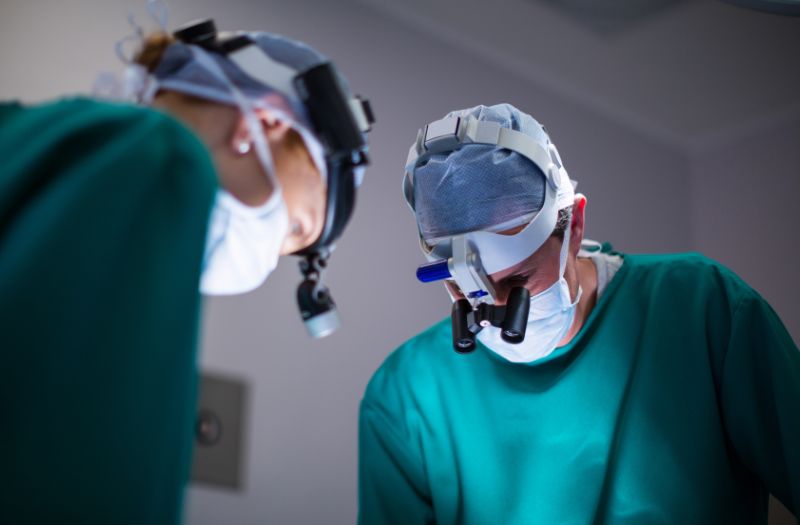If you have been diagnosed with a herniated disc and are controlling the pain with the help of medication, exercise or physical therapy, you should know that, in some cases, this only masks the symptoms. In this article we describe some of the possible consequences of not having surgery in those cases where it would be the best treatment option.
Some people handle pain better than others; we see it in our patients every day. That is why they prefer conservative treatments and don’t spend much time thinking about surgery as an option for treating their pain. At Instituto Clavel, we believe in conservative treatments, and our first choice is always to treat the patient outside the operating room.
However, not every patient is a good candidate for conservative treatment, as it might jeopardize their health and affect their ability to go about their daily activities. The pain may increase and their symptoms may worsen rather than improve.
When a health problem is left untreated for a long time, it can eventually worsen your quality of life, but when it comes to problems of the spine, the issue is even more delicate. The spinal cord is responsible for controlling the nervous system which runs throughout your body, and if you have a disc herniation which is not treated correctly, it can damage the nerve roots or cause chronic pain.
Below we list the consequences of not having surgery on a herniated disc if that is the option that specialists have recommended for treating your pain:
- Long term, almost permanent pain.
- Nerve damage (which may become permanent).
- Partial paralysis.
- Loss of sphincter control, in the case of lumbar herniated disc. In very extreme cases, the patient loses sensation in the internal muscles, the back of the legs, and the area around the rectum.
Severe symptoms of a herniated disc

When should you have surgery for a herniated disc?
Not every patient with a herniated disc needs surgery; it is estimated that surgery is required in only 10% of cases. Part of that percentage is made up by patients who begin with conservative treatments, but who still do not find relief after 6 to 8 weeks of treatment.
Experience has shown us that if a patient does not find relief from those treatments after that amount of time, continuing that treatment is not likely to relieve their symptoms. It is then that the specialist considers surgery as the most viable option for helping the patient get back to their normal life. Here's when a herniated disc needs an operation:
- When it restricts movements: suppose the hernia is located at the cervical level and prevents you from moving your arm or hand normally. This may be a sign that it is damaging the nerve that allows you to perform that movement. In these cases it is advisable to operate on the herniated disc.
- Medication does not relieve the pain: when the patient’s pain is very strong, surgical treatment options can be considered even before completing 6 to 8 weeks of conservative treatment.
- It compresses all the nerve roots: this is referred to as “Cauda Equina Syndrome”. This condition causes severe pain in the lower back, loss of strength in the lower limbs, and urinary problems, such as incontinence. A patient experiencing this syndrome requires surgery urgently.
Lumbar disc herniation surgery
At Instituto Clavel we are committed to solving the nerve compression caused by lumbar disc herniation in the least invasive way possible. Therefore, in most cases we choose to perform a lumbar microdiscectomy. This procedure consists of removing the herniated tissue and, depending on the case, the partial emptying of the affected disc.
However, there are patients whose hernia has a very wide base with bilateral root compression, or associated with other pathologies. Here, we prefer to use arthroplasty (ADR), in which the damaged disc is replaced with an artificial prosthesis. And as a last option, in cases where there are additional damaged elements of the anatomy, the surgeon can perform an arthrodesis or spinal fusion.
Cervical disc herniation surgery
When it comes to a hernia at the cervical level, the same procedures described in the in the previous section can also be used. We will evaluate the possibility of performing a minimally invasive technique, such as cervical microdiscectomy. This procedure is carried out antero-laterally, which prevents excessive manipulation of the medulla and nerves.
However, after a microdiscectomy, it will be necessary to replace the degenerated disc with an artificial one, and this is where ADR or disc replacement surgery comes into the picture. This alternative is preferred over fusion surgery, because it is much less invasive and allows the patient to retain the natural mobility of their spine.
In response to the question we are often asked about how long the surgical procedure lasts, the answer is that it depends on the type of approach that is used and the region of the spine that is involved. However, generally speaking, a disc hernia operation does not take more than an hour.
Categories: Spine treatments, Surgery, Instituto Clavel
